
BEIJING, March 9 (Xinhua) -- To actively participate in international affairs and contribute to the building of the international system will be a priority of the diplomatic strategy of China's new leadership, one top diplomat said here Saturday.
Chinese leaders will become actively engaged in summits and top leadership diplomacy to further enhance China's international image and raise its international influence, Foreign Minister Yang Jiechi said at a press conference on the sidelines of the first session of the 12th National People's Congress (NPC).
China's new president, to be elected at the NPC session, is expected to make a debut on the international stage, with invited visits to Russia, Tanzania, South Africa and the Republic of Congo.
China and neighboring Russia, Yang said, see each other as a significant opportunity for development and a priority partner for cooperation.
The new president will also attend the fifth leaders' summit of BRICS countries, to be held from March 26 to 27 in Durban, South Africa.
BRICS is an economic bloc representing five of the world's leading emerging economies, Brazil, Russia, India, China and South Africa which represent about 43 percent of the world's population and about one fifth of the global gross domestic product.
RELATIONSHIP WITH U.S., EU
The relations between China and the United States, the world's top two economies, generally maintained a momentum of steady development in recent years due to joint efforts from both countries.
Chinese President Hu Jintao and U.S. President Barack Obama had successful exchange of visits and met 12 times. Xi Jinping, general secretary of the Central Committee of the Communist Party of China, exchanged letters with Obama after he was reelected to U.S. president.
"Leaders of the two countries reached agreement that China and the United States should work together to build a cooperative partnership based on mutual respects and mutual benefits and explore the establishment of a new type of relations between major countries," Yang said.
China and the U.S. share the most convergent interests and have the most frequent interactions in Asia Pacific, he said, citing that China welcomes a constructive role of the U.S. in Asia Pacific, and the U.S. should also respect China's interests and concerns in the region.
"The regional affairs in Asia Pacific should be handled by all countries in the region through consultations to promote peace, stability and prosperity in the region," he said.
The relationship between China and the European Union is one of the most important bilateral ties in the world. This year marks the 10th anniversary of the establishment of the comprehensive, strategic partnership between China and the EU.
In the latter half of this year, the two sides will hold the 16th China-EU summit and discuss an institutional framework for their medium-to-long-term cooperation.
"We will also step up collaboration in such areas as urbanization, new energy sources, scientific and technological innovation and green development," Yang said.
GOOD NEIGHBORLY RELATIONS
Neighboring countries became increasingly important in China's diplomatic setup.
In 2012, China's trade with neighboring countries exceeded the total that China had with Europe and the U.S. to reach 1.2 trillion U.S. dollars. The trade volume is further expected to increase.
Besides the trade growth, China has established strategic partnerships with most neighboring countries. More than 100 high-level official visits were made last year.
"It is not surprising to see 200 or even 300 such visits in the future. As neighbors, our relations will be closer with more exchanges," he said.
China will host an annual meeting of the Boao Forum for Asia next month in Boao, Hainan Province, in which state leaders of China and some foreign countries, as well as heads of international organizations will attend.
China and the the Association of Southeast Asian Nations have launched the largest free trade area (FTA) among developing countries in the world while the Shanghai Cooperation Organization has formed its first strategy for medium and long-term development.
The negotiations for an FTA among China, Japan and the Republic of Korea as well as the regional comprehensive partnership have been launched.
On territorial disputes with some neighbors, Yang said China sticks to a firm stand of defending its sovereignty and legitimate rights and interests, while hoping to properly handle and resolve the disputes through negotiation in order to maintain regional peace and stability.
China has taken firm measures over the tension over the Diaoyu islands. The Diaoyu Island and its affiliated islets have been China's inherent territory since ancient times, Yang said.
"The current situation has been caused by the Japanese side single-handedly. The root cause of the Diaoyu islands issue lies in Japan's illegal seizure and occupation of China's territory.
"The Japanese side needs to face up to the reality, take real steps to correct its mistakes and work with China to properly handle and resolve the relevant issues through dialogue and consultations to prevent the situation from further escalating or even getting out of control," he said.
"We are willing to promote the strategic and mutual beneficial China-Japan ties on the basis of the four political documents signed by the two countries," the minister said.
Tensions on the Korean peninsula were once again heightened, after the Democratic People's Republic of Korea (DPRK) conducted its third nuclear test on Feb. 12. It conducted two nuclear tests in 2006 and 2009.
The UN Security Council passed Resolution 2094, demanding that the DPRK not proceed with further nuclear tests, give up any nuclear arms program, and return to the nuclear Non-Proliferation Treaty.
The resolution also called for peaceful, diplomatic and political settlement of the current situation and a resumption of the six-party talks which began in 2003 but stalled in late 2008.
Yang said China holds that sanctions are not the end of the UN Security Council actions, nor the fundamental way of solving the Korean Peninsula nuclear issue.
The only solution to the Korean Peninsula nuclear issue is to hold negotiations and address concerns of all parties in a comprehensive and balanced way, he said.
"We call on all relevant parties to bear in mind the larger interest, stay calm, exercise restraint, and refrain from taking any moves that may further worsen the situation," Yang said.

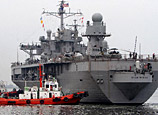

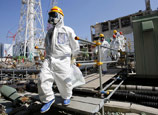


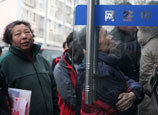
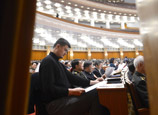


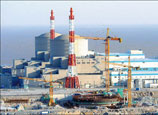






 Hot weather in Chongqing, Beijing vs. Spring snow hits Urumqi
Hot weather in Chongqing, Beijing vs. Spring snow hits Urumqi


![]()
